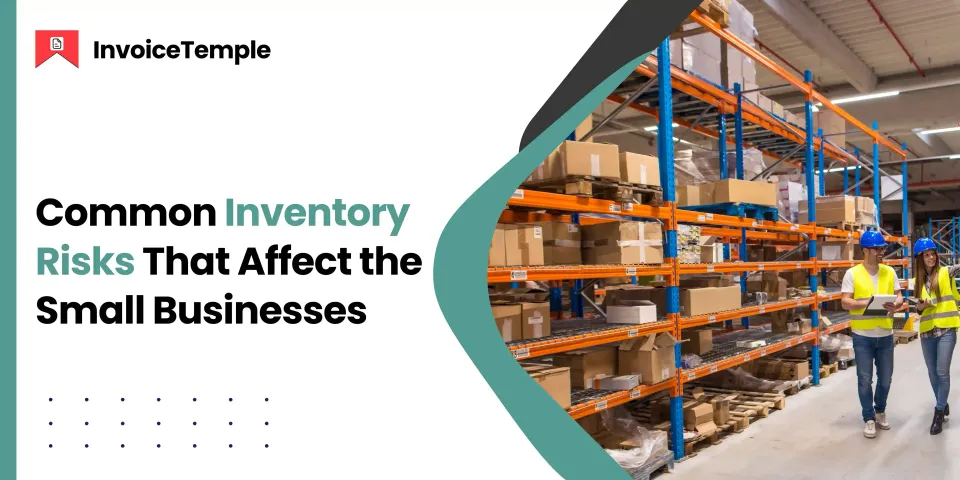Common Inventory Risks That Affect Small Businesses

Beyond software-based businesses, many businesses run by administering inventory. Some businesses have surplus inventories, while others run with a dearth of stock. No matter how effectively the business owner manipulates the inventory, there are chances for the contingency of inventory risks.
The contingency of inventory risks can arise due to various reasons. Only through an effective inventory management system can these inventory risks be rectified, and a smooth business flow will be maintained. With the presence of inventory risks, the result is execrable. This blog covers the common inventory risks that every business faces and how those risks impact small businesses. If you are facing inventory risks, then you can find a solution to it in this blog.
How Can the Term Inventory Risks Be Defined?
Inventory risk is the situation that arises in a business due to poor management of inventory and results in adverse effects on the business. These inventory risks can arise due to fluctuating demand in the market, changes in customer preferences, seasonal changes, a rise in competitors in the business market, etc. A perfect example of the occurrence of inventory risk is the bad overstocked inventory that every business owner faced during the COVID–19 lockdown. This situation creates an overabundance of various items for some businesses and an understock of various items, like certain medicines. The inventory risks create several disadvantages for the business, which include
- Negative cash flow of the business
- Glitches in the supply chain
- Storage problems
- Poor sales performance
Common Inventory Risks in Small Businesses:
1. Overstocking: A common inventory risk is having excess stock. This occurs when the business owner doesn’t have any clear idea about how much stock to purchase, not analyzing the current trend, sales pattern, preferences of the customers, etc. Due to excess inventory, the storage cost will increase, the amount of unsold goods will increase, enhanced profitability cannot be obtained, and it creates warehouse congestion.
2. Stockout of Inventory: The stockout situation is the most crucial inventory risk that arises when the product is not available to deliver to the client. This stockout arises due to a rise in demand in the global market, delays in the production process, unexpected sales of selective goods, etc. Such inventory shortages can foster a negative perspective among customers, who might believe your business often lacks product availability. This in turn affects the business operations, smooth cash flow, long-term relationships with the clients, and losing a standard position in the global business market, etc.
3. Inaccurate Forecasts: The most common type of inventory risk is inaccurate forecasts. This occurs when the essential business reports are not reviewed properly, unexpected changes in the inventory levels, and inconsistent business operations. These forecasting errors do not give a clear estimate about the inventory data, increase the production costs, and damage the business reputation badly.
4. Spoilage in Inventory: Some inventories, like medicines, food items, etc, have expiry dates. When these items are not sold before the expiry date, they become dumped in the warehouse itself, and they become obsolete. This spoilage creates financial loss for the business, and the normal business operations also get affected.
5. Inventory Theft: Some business owners won’t spend much on the safety of the warehouse inventory system. This may lead to some inventory theft. This affects the smooth business operations.
Every business faces these inventory risks. But when it is handled properly through an effective inventory management system, most of the risks can be avoided. But many business owners don’t like to spend much time and money on this inventory management. To make this inventory management system easier, software like InvoiceTemple can be used. It provides a stable support for your business by providing a seamless inventory management process and professional creation of invoices.
